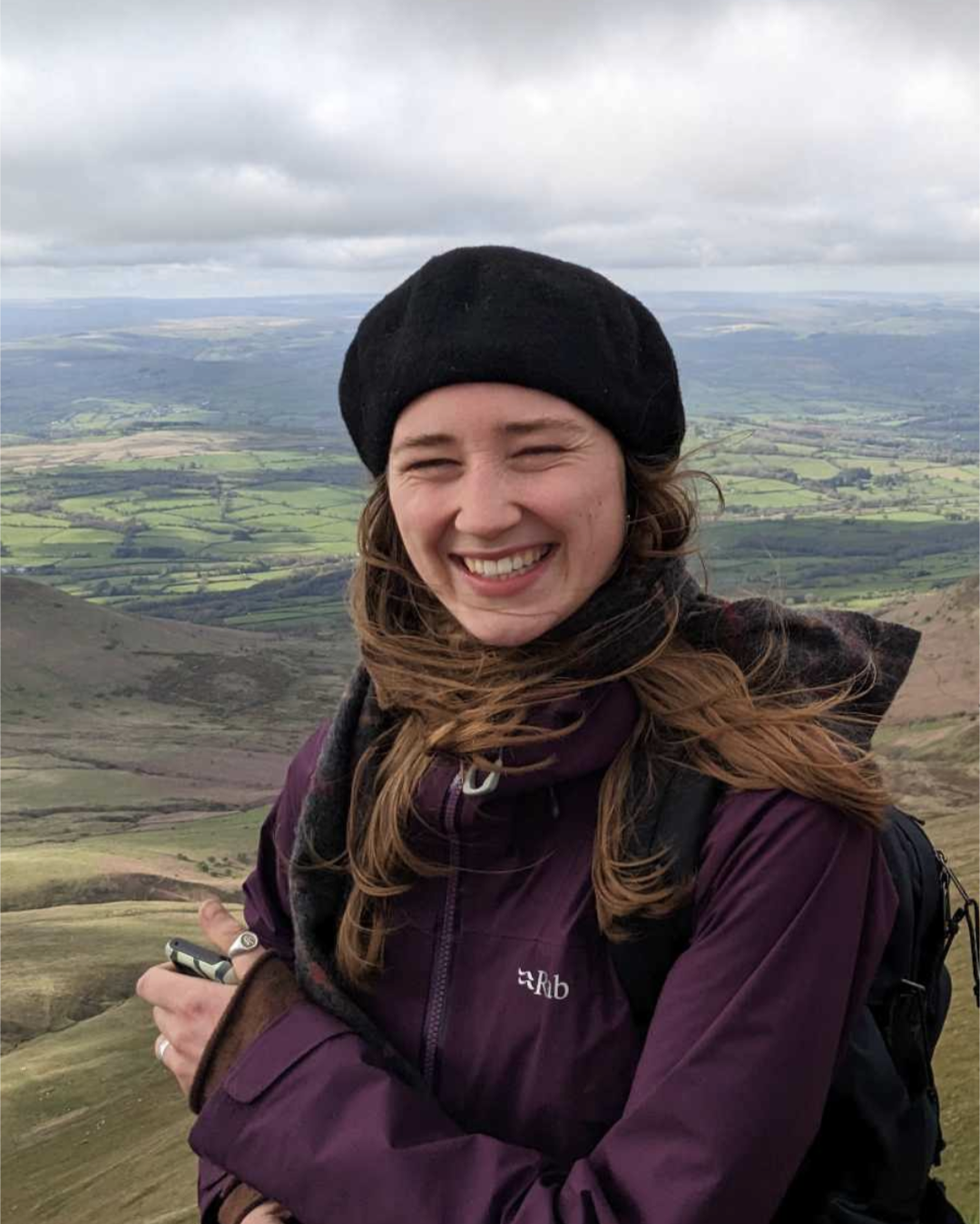Our world-leading environment and sustainability research underpins a wide range of postgraduate programmes. In our Meet our Students series we look at the journeys taken by those studying MSc courses within the Graduate School of Environment and Sustainability, explore why they have chosen to study with us and learn about their experiences at the University of Exeter, Cornwall. Today we hear from Seren Peregrine, an MSc Conservation and Biodiversity student!
Name: Seren Peregrine
What course are you studying? MSc Conservation and Biodiversity
Where do you call home? Bannau Brycheiniog (Brecon Beacons, Wales)
Where did you complete your undergraduate course? University of Bristol
What was your undergraduate course? MEng Civil Engineering – research projects in natural flood management (beaver reintroduction and peatland restoration).
Did you work or volunteer before starting your MSc programme? If so, in what roles?
Before starting my MSc, I worked for a year in Bristol as a Graduate Water Engineer for the consultancy Arup, specialising in the design of natural flood management schemes and Nature-Based Solutions. I worked for clients such as the Environment Agency, Welsh Water and the National Trust. I also volunteered as a youth forum member with the Avon Wildlife trust.
What attracted you to your MSc course? Why did you choose the University of Exeter?
I used a dataset from the University of Exeter from the River Otter Beaver Trial for my undergraduate dissertation – so I knew then that there was a lot of interesting research coming out of Exeter! I was particularly drawn to this course because of the ‘Rewilding the United Kingdom’ fieldtrip in Scotland, and the opportunity to engage with key stakeholders about the threats facing ecosystem diversity and leading restoration initiatives. Furthermore, this University of Exeter has a reputation to be one of the best institutions to study ecology, with leading academics in the field, and collaborations with both local and international organisations.
What do you like about living and studying in Cornwall?
What is not to like! The rugged coastline, picturesque landscapes and vibrant art scene makes Cornwall, and particularly the Falmouth and Penryn area an inspiring place to study, full of opportunities to get involved with conservation. I have found the community here to be incredibly warm and inviting in nature. The community-feel, coupled with a slower pace of life, seem to foster a sense of belonging and interconnectedness with the environment and one another.
What are you looking forward to most about your course?
I have to say the fieldtrips – including learning about nature recovery and sustainable agriculture in the lizard peninsula, beaver reintroduction in Devon, and the rewilding fieldtrip to Scotland. I am also excited to find out what I will be doing for my dissertation, as there is an abundance of opportunities to travel and connect with research organisations all over the world, and work on impactful and potentially publishable research papers.
What skills and experiences are you hoping to gain from your course?
Coming from a more traditional engineering background, I am eager to deepen my environmental grounding through learning from leading academics about the ecological theory behind conservation science and hear real examples of the challenges faced by those putting conservation into practice. I also hope to gain fieldwork and stakeholder management skills during my dissertation and gain practical experience of completing habitat surveys and species survey techniques.
What have been the highlights so far?
I am continually thankful for the opportunity to attend this university and engage in studies within such an inspirational setting. Among the many modules, my standout favourite so far has been the Biodiversity and Conservation module. It has been a dynamic experience, with both internal and external experts offering insights on critical topics, including adapting conservation to climate change, marine over-exploitation, human-wildlife conflict, and invasive species management. The teaching quality and presentations have been outstanding, and the interactive discussions that follow these presentations empower students to evolve into scientifically-informed conservation practitioners.
What are your career aspirations?
I am deeply motivated by the vision of creating a harmonious balance between human and planetary needs. My ultimate goal is to actively contribute to in on-the-ground initiatives focused on landscape regeneration and ecological restoration. After honing my fieldwork skills over time, I aim to take on a project management position within either a non-governmental organisation (NGO) or a consultancy, to steer initiatives dedicated to restoring natural processes in degraded landscapes.
The Graduate School of Environment and Sustainability brings together experts from across the spectrum of earth and life sciences, engineering, humanities, social sciences and business. Our programmes are all designed with a focus on developing solutions to global challenges and creating a better future for our planet and its people. Help lead a global Greener, Healthier and Fairer revolution by studying one of our world-leading, interdisciplinary Masters degrees here at the University of Exeter, Cornwall. See our Masters programmes here.

